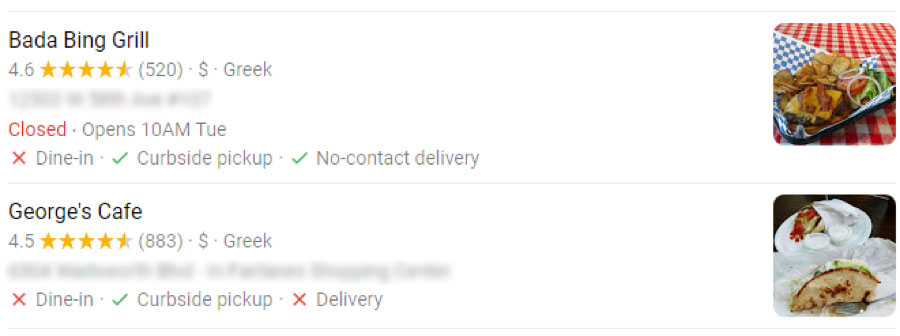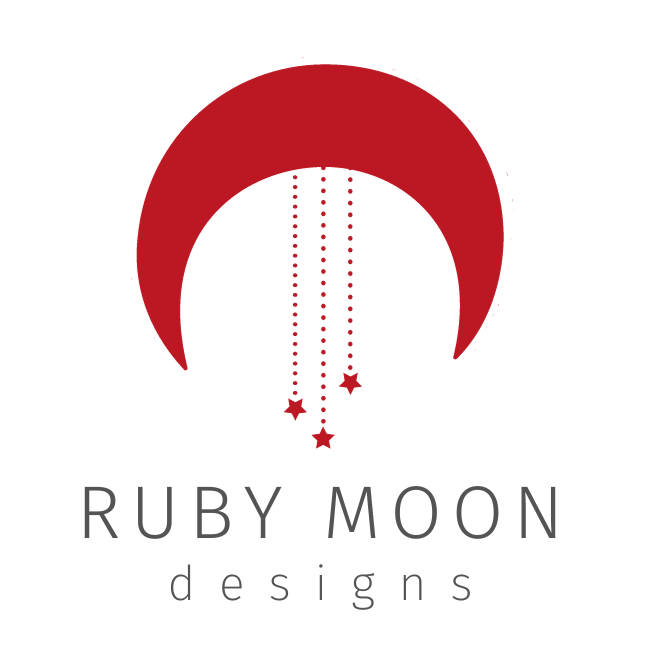It’s lunch time. Your stomach is growling.
Pretend you want to eat at a Greek restaurant. To find the Greek restaurant nearest you, you enter “Greek restaurants near me” in to the search query box on Google. This comes up:

The page that comes up in response to your query, as you may know, is called a Search Engine Results Page (SERP).
On this SERP, notice how the restaurant information is formatted. You’re given a name, a star rating, an address, possibly times of operation, dining options and a thumbnail photo of food. Nice.
Chances are, these results are being delivered to you this way because they were coded with structured data, not just HTML. How can we tell? They are formatted identically with information in a logical order. Plus, the graphic presentation is identical. Neat and sweet.
Schema markup is a way of implementing structured data. Want a tidy definition? The Search Engine Optimization (SEO) gurus at Moz define Schema.org markup this way:
“Schema.org (often called Schema) is a semantic vocabulary of tags (or microdata) that you can add to your HTML to improve the way search engines read and represent your page in SERPs.”
Why does Schema matter?
Many times if you see an attractive query result on a SERP, it’s courtesy of Schema markup or programming. Let’s look at why that matters.
Have you ever been to a Starbucks? Who hasn’t at this point, right? Does the strange, green mermaid logo pop into your head? It’s now in mine.
Anyway, if you don’t fancy the coffee chain, imagine your favorite franchise store instead.
Whether you go to a Starbucks in Canada or the U.S., you generally find products in the same place in a Starbucks store and they generally look the same.
You have your hard goods area with fancy mugs and cups. There’s usually a floating island of seasonal treats, gifts and coffee, then there’s always a glass bubble window guarding an array of scrumptious baked goods and, of, course, the order counters generally look the same.
And the coffee vocabulary is mostly the same. Let’s not get started. Entire blogs have been written praising or cursing short, tall, venti, grande, etc.
The idea is: You know what to do. You get the lingo. You’re comforted by the organization of the store, the familiar smells. You know what to expect from the experience and the end result. A smiling person greets you, you order, you follow the curve of the counter to the end and “voila” personalized steaming coffee and maybe a sticky bun—are ready for you.
Schema works in the same way. A group of industry giants got together (Google, Microsoft, Yahoo, Yandex) and decided it would be a good idea for data to be presented in markup or programming in the same way with the same vocabulary and features so that search engines as well as end users could easily identify and use that information every time.
How does using Schema help my site?
Schema helps your site in two ways. First, adding Schema markup to your site HTML can improve your SEO because it helps search engines easily crawl your site and identify information.
Instead of encountering random data, a search engine encounters data packaged in a way that’s familiar. The microdata is the same as data on other sites on the web. Search engines understand it. The result: Schema helps search engines identify your data more easily and faster. This can improve your site’s visibility and even elevate your ranking on a SERP.
Second and more importantly, your end-users encounter the results of your schema markup and their experience is improved too. Rich snippets, or breadcrumbs or links, etc. of schema data are delivered to SERPS in response to your users’ queries and, as we’ve discussed, these bits of data look the same as other data snippets the users have encountered from other searches. Better than that, the results also look like you care.
That’s a good thing, because people read fast these days. You don’t have much time to get their attention or trust.
A user sees their query result with the same colors and graphic presentation, blinks and thinks, “Ahhh! A venti caramel macchiato, I get it!” Since their info is delivered to the SERP in a standardized way across the web, that familiarity makes digesting information fast, easy and even pleasurable.
Schema markup types exist for just about any data you wish to present:
- Creative works like books and movies
- Embedded non-text objects like videos or images
- Events
- Health and medical types
- Organizations
- People
- Places
- Products
- Reviews
- Actions
As mentioned, schema data can appear as snippets, breadcrumbs, sitelinks, graphs and more. For illustrations of each of these, peruse this fine schema type blog at Direction.
Check out Organization of Schemas at Schema.org for more Schema type ideas from the source of all things Schema. You can also discover the Schema community and dig into additional resources.
Want to see structured data coding and understand how it works? Check out Google’s structured data FAQ.
How can I implement Schema on my site?
Now that you’re convinced that Schema is straight fire, you’ll want to get started. Many tools are available to help you use Schema to aid search bots and benefit your end-users. One of the simplest and best: the WordPress Schema Plugin.
WordPress offers free or premium Schema plug-in options to output in the standard JSON-LD format, one of the three formats recommended by Google. The premium version gives you access to more personal support and more schema types. See a comparison of free vs. premium options.
Once you choose your plug-in type, download it from the WordPress.org site. You can activate the plugin through the “Plugins” menu in WordPress. You’ll be led to a set-up wizard that will guide you through installation and configuration as well as tutor you on how to use your options. Access the official installation instructions.
Have questions?
No matter what type of coffee you drink (ok, I’m a little bit of a snob, my spouse hand roasts beans in our backyard), I am here to help you with Schema, WordPress or SEO questions. Feel free to contact us online or call (720) 443-1407 to schedule your free 30-minute consultation to discuss how to implement Schema on your website and more.
Sublime Creations is an eco-friendly company that specializes in website consultation, design and personalized training catering to local and small businesses, individuals, start-ups, and entrepreneurs.




